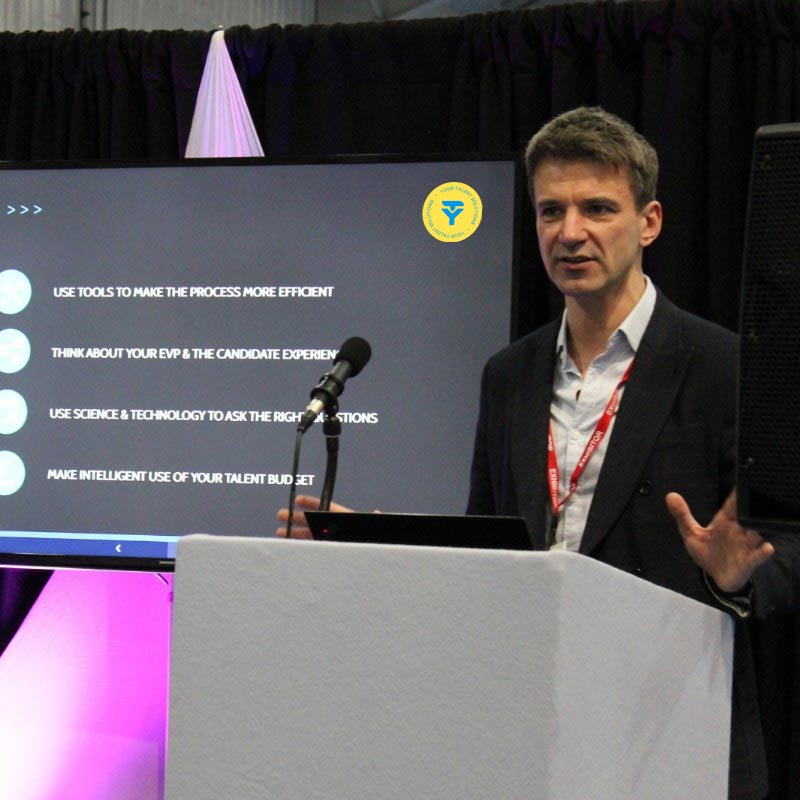
Debunking Misconceptions: Understanding Millennials in the Workplace
“It was better in my day; we had more patience”.
But was it really better to say frustrations were acceptable, and that it’s OK to spend huge amounts of
your time at work ranging from mildly disgruntled to full out annoyed? Surely progress and more
inclusive workplaces are a good thing. Are we also saying these good old days – where sometimes
the person that had been there the longest got promoted – were better than forging a career and
getting the right level of reward for the work you put in?
I’m not so sure, and as a proud Gen X-er, feedback I hear in the market seems to point towards
Millennials in particular getting a rough deal from these attitudes.
“In my day, I just got my head down and got on with it”.
That’s not to say this attitude isn’t valid, that’s what we all did and were encouraged to do 20 years
ago. But it’s more complex than that now, and if you’re still feeling like the generations that have
come after yours are not aligned to your business and values, you may be inadvertently missing a
huge opportunity.
Time to update your work operating system, like you would your iPhone?
Think of it a little like your smart phone, how quickly that’s changed over the past 5 years. Every now
and again you’ll update the system, you’ll get new emojis, some more apps you’ll never use, and
sometimes some brilliant new feature that’s really useful. The workplace is evolving, rapidly, in a way
and at a pace it’s never done before. You could even argue that the workplace, and attitudes towards
it, are overdue an upgrade. Millennials and Gen Z represent an opportunity to turbo charge many
businesses, if you can understand and embrace any subtle but glorious differences in the approach to
work.
75% of the workforce will be Millennial by 2025 – Deloitte
The millennial generation, born between the early 1980s and the mid-1990s, has often been subject
to various stereotypes and misconceptions, particularly in the workplace. As this generation
continues to dominate the labour market, it becomes imperative to separate fact from fiction and
challenge the prevailing misconceptions about millennials. We’re going to look at some of the most
common stereotypes we hear:
Millennials are job-hoppers – FALSE
One of the most prevalent misconceptions about millennials is that they are serial job-hoppers,
lacking loyalty and commitment. However, this stereotype is not supported by the data. According to
a study conducted by the Pew Research Center, millennials actually exhibit similar job tenure patterns
as previous generations did at their age. The study found that the median tenure for millennials in
their current job is around 3 years, which is not significantly different from the tenure of Generation X
when they were in the same age range. So, the notion that millennials are constantly on the lookout
for the next job opportunity is a nonsense, but the key difference is 20 years ago there was the
expectation to stay in a job if it was just OK. Millennials will move quicker, with less regret and with
less stigma amongst friends and family, which means workplaces and managers risk losing more than
ever before if you don’t create positive working environments.
Verdict: I think this is positive change and will encourage businesses to treat staff well and
with respect, and reward them for hard work, creativity and effort. If you say to someone of a
different generation that you left your job after 18 months, the likely response is “what went
wrong?”. It’s totally normal, and even accepted, that younger generations will change
companies every 2 years if they’re not feeling satisfied, so it’s up to businesses to either make
sure they are or change their people strategy to accept the turnover.
Millennials are lazy and entitled – FALSE
Another common stereotype associated with millennials is that they are lazy and have an entitlement
complex, expecting immediate success without putting in the necessary effort. However, this
perception is quite a long way from being accurate. According to a comprehensive survey conducted
by Gallup, millennials are just as likely as other generations to be engaged at work. The study found
that 29% of millennials are actively engaged in their jobs, which is comparable to the engagement
levels of Gen X (32%) and baby boomers (28%). These statistics indicate that Millennials are not
inherently lazy but are, in fact, actively involved in their work and strive for success.
Boomer and Gen X bosses typically talk about millennials asking for salaries that just don’t match
their experience levels. They say they just aren’t worth the figures they are asking for, and on top of
that, they have the temerity to expect swift career advancement. However, consider that these
Millennials have been raised by the same generations that now have these gripes, Boomer and Gen
X, who have apparently spoiled them as they’ve grown up as well as given them the power of
information via access to the internet. So, unlike the previous generations, kids born at the end of the
last century could see what other people, their peers, were doing. Crucially, they could see how
excited or uninspired they were at work as well as how much they got paid.
Verdict: Millennials can be raised to think that the world is out there waiting for them and can
be disappointed when it doesn’t quite happen for them. It’s easy to mistake a Millennials
ownership of their career, their self-reliance and sense of “anything is possible” attitude as
one of entitlement. But it’s Hustle Culture, really needing to make moves to make progress if
it’s not happening quickly enough. In the old days they called this drive and ambition, which
was fine as long as it wasn’t too much drive and ambition. We’d hire anyone, today, who
showed off-the-scale levels of drive and ambition, but we’d also accept the onus was on us to
nurture and to make the most of that skillset.
Millennials lack professionalism – FALSE – But it’s more complex than that
Millennials have often been criticised for their casual attitudes and alleged lack of professionalism in
the workplace. However, this stereotype is also supported by the evidence. A study conducted by
LinkedIn, analysing the behaviour of more than 300 million professionals on its platform, found that
millennials exhibit higher rates of professional development activities compared to previous
generations. The study revealed that millennials are 22% more likely to attend industry conferences,
56% more likely to take professional development courses, and 26% more likely to join a professional
organisation.
Verdict: It’s important to remember Millennials are the most educated cohort we’ve ever seen,
more so than any previous generation, and Gen Z will step this up even further. The standard
of education, the rate of those going to university has all increased. And as the world of AI,
automation and digital skillsets also increases, it’s having a big impact on the workplace as we
shift from labour based work to knowledge based work. There are tensions in the workplace
as a result, employees are more aware as they are more educated than in previous times, but
this means employers expect them to know more and to work at a higher level. They are
expected to come into jobs more rounded, somehow more trained to slot straight in. 20 or 30
years ago, we had more office or team juniors, apprentices and people at the bottom of the
ladder we acknowledged needed to learn. Transitioning from education at any level into a
work setting takes some people more time than others, but we all had some level of settling
into the new expectations and behaviours that come with a job. Help them transition instead
of scratching your head, understand what they’re thinking and why, and watch them flourish.
Millennials prioritise work-life balance over career advancement – FALSE
Another stereotype often associated with Millennials is that they prioritise work-life balance over
career advancement. While it’s true that millennials value work-life balance, they’re also ambitious
and want career growth opportunities. According to a study by Deloitte, 63% of Millennials believe
their organisations provide sufficient opportunities for career progression. Moreover, the study
revealed that Millennials who plan to stay with their current employers for more than five years are
twice as likely to be satisfied with their career progression compared to those planning to leave within
two years.
Verdict: Nearly half of Gen Zs, and the majority of Millennials, say their job is central to their
lives and sense of identity, second only to their family and friends. I doubt many generations
would argue this point. There is a strong desire achieve a better balance though, another
survey by Deloitte found that more than any other trait among their peers, Millennials and Gen
Zs admire the ability to strike a balance. Other studies have indicated this could be as a result
of their upbringings. Millennials and Gen Z’s parents in some cases have come to realise at
the end of their careers that they understood they were taken advantage of by their employers
and didn’t want their children to feel the same way. Millennials and Gen Zs seem to be able to
spot and say things about career fatigue or burnout that their parents couldn’t, which is likely
to make their careers more sustainable in the long run.
Conclusion
It’s not an attitude problem – it’s an expectations problem. There’s often a disconnect between
expectations of employee and employer, the salary being a prime example. Millennials and Gen Z
expectations have lifted, this is a fact that we can clearly see all over Glassdoor and other review sites
as well as social media. If your benefits haven’t changed, or they’re uninspiring or just not very
useful, you will struggle. We all know a pension is important but offer someone coming out of
University free Netflix instead and see which one they value more, which job opportunity they pick.
And it’s getting harder and harder to own a home in the UK, and also to start a family. So, the
emphasis is on work, on career in a way it hasn’t been previously. All of a sudden, it’s much more of
a driver than maybe us Gen Xs had realised, and with good reason. They might be putting in twice
the effort of their parents to get half as far. Doing everything everyone told them to do, and still being
nowhere near owning a home. You can see how this would be frustrating. So, if your pay hasn’t gone
up with inflation, or it’s remained pretty static, or worse, you’ve known for a while that “we under pay
but that’s just how we operate” then also be prepared for people to research this before they even
send their CV, and for it to be discussed on the internet.
The generations coming into the workplace are more socially conscious, more environmentally aware,
more concerned and open about mental health than anyone before them. None of these are bad
qualities in a workforce. And they are more technically advanced, more highly educated and
considerably more likely to take on their professional development in their own time and with gusto if
they feel inspired.
And if your son or daughter was going to give a company all of this, their drive and determination,
you’d hope the company in question met their needs in the most rounded sense.


